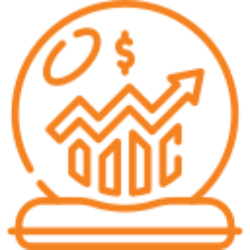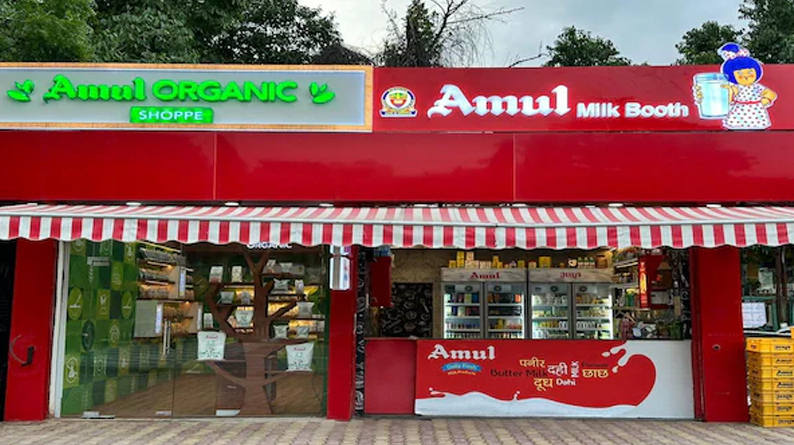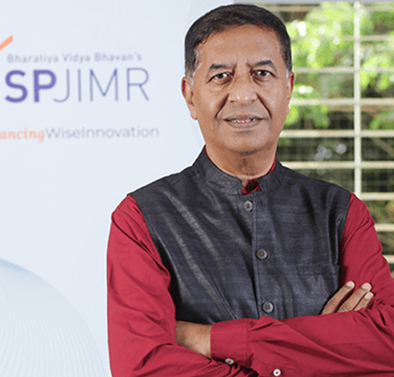In a progressively unified and digital global economy, supply chain management (SCM) plays one of the most critical functions in commerce. Supply chain management is the centralised management of the movement of goods and services to and from a corporation and incorporates all of the processes involved in transforming raw materials and components into final products. SCM covers the complete journey of merchandise, and when done well, it can be a crucial differentiator for companies.
It influences everything from customer satisfaction to sustainability. With SCM, businesses can reduce surplus costs and bring goods to the customer sooner and more efficiently.
For students exploring careers or specialisations in business, understanding supply chain basics is an excellent starting point. But for those unfamiliar with the concept, what does supply chain management really mean? Why is it so important? And how does one prepare for a career in this high-demand domain? Let’s break it down.
Understanding supply chain management: Meaning and objectives
Supply chain management refers to the coordinated planning, control and execution of a product’s movement, from sourcing raw materials to the delivery of the final product to the end customer. It is not just a logistical function but a strategic capability that can determine whether a business thrives or falters in competitive markets. SCM involves overseeing complex interdependencies among suppliers, manufacturers, logistics providers, distributors and retailers. These moving parts must be synchronised to ensure that goods and services flow efficiently, cost-effectively and reliably across the entire value chain. As global supply chains grow more interconnected and volatile, the ability to manage them effectively has become a defining strength for modern organisations.

The main objectives of SCM are to:

Ensure customer satisfaction by delivering the right product at the right time and place
A well-managed supply chain ensures that products reach consumers promptly and in optimal condition, enhancing brand trust and customer loyalty.

Optimise operational efficiency and reduce costs
By streamlining procurement, production and distribution processes, companies can eliminate waste, minimise delays and reduce overheads.

Improve responsiveness to changing market conditions
Agile supply chains can adapt to shifts in consumer demand, supply disruptions or competitive pressures, helping businesses stay ahead of the curve.

Increase transparency and minimise risks across the value chain
With greater visibility into suppliers, inventory and logistics, companies can anticipate disruptions, mitigate risks, and comply with regulatory requirements more effectively.
How supply chains work: A step-by-step breakdown
The supply chain management process is best understood as a dynamic and interconnected cycle, rather than a set of isolated tasks. It encompasses every activity required to move a product from concept to customer, linking suppliers, manufacturers, distributors, and retailers through carefully managed flows of information, materials, and capital. A well-designed supply chain not only ensures efficiency and cost-effectiveness but also enhances an organisation’s ability to respond swiftly to market changes, customer expectations, and global disruptions. In today’s highly competitive environment, businesses must see their supply chains as strategic assets, ones that can drive growth, innovation and long-term value.
The SCM process is often visualised as a continuous cycle that includes several key functions. While each organisation may approach it slightly differently, the major steps typically include:

Planning
This involves forecasting demand, developing supply strategies, and coordinating resources. Strategic planning sets the foundation for supply chain success.

Sourcing
Finding and managing reliable suppliers is central to SCM. This includes contract negotiation, procurement, and building supplier relationships.

Manufacturing
This stage covers the transformation of raw materials into finished goods. It includes production scheduling, quality control and facility management.

Logistics and distribution
Products must be stored, transported and delivered efficiently. This phase involves inventory management, warehousing, transportation, and fulfilment strategies.

Returns (Reverse logistics)
Handling returns, rework and recycling is increasingly crucial for sustainability and customer service.
Each of these steps must be integrated seamlessly, using both human expertise and technology, to create a supply chain that is agile, resilient and sustainable.
Why does supply chain management matter
The importance of supply chain management has grown dramatically in recent years, evolving from a back-end operational function to a strategic pillar of business success. As IBM highlights, global events such as the COVID-19 pandemic, geopolitical tensions, and climate-related disruptions have exposed just how vulnerable traditional supply chains can be (IBM). These challenges have led to widespread shortages, delays, and rising costs — forcing companies to rethink how they manage the flow of goods and information.
In response, organisations are now prioritising supply chains that are not only cost-efficient but also agile, resilient and transparent. The ability to adapt quickly to disruptions, switch suppliers, or reroute logistics in real time has become a competitive differentiator. Moreover, as consumers demand more ethical and sustainable practices, supply chains are increasingly being evaluated not just on efficiency, but on their environmental and social impact.
Strong SCM capabilities enable businesses to meet customer expectations more consistently, reduce operational risks, improve decision-making through better data visibility, and ultimately protect both revenue and reputation. In today’s interconnected world, supply chain management is no longer just about moving products — it’s about driving value across the entire business ecosystem.

Image credit: StreetFins
A notable example is Apple Inc., whose supply chain agility played a critical role during the global chip shortage. While many competitors faced long delays, Apple leveraged its strong supplier relationships and demand forecasting capabilities to prioritise high-margin products and secure production capacity. This allowed the company to minimise disruptions, continue product launches on schedule, and maintain consumer trust — underscoring how strategic SCM can directly impact business performance.
A thriving career in supply chain management in India offers competitive compensation, particularly as professionals advance. According to Salary.com’s Global Salary IQ data, the average annual salary for a supply chain manager in India is around ₹15.6 LPA (lakhs per annum), with typical ranges spanning between ₹13.2 LPA and ₹21.6 LPA as of April 2025 (source). This translates to strong earning potential, especially when compared to entry-level roles in other functions.
Core supply chain concepts you should know
A solid grasp of a few foundational concepts will go a long way in understanding the supply chain domain:

Demand forecasting
This involves predicting customer demand using historical data, market trends and analytics. Accurate forecasting helps avoid overstocking or stockouts.

Inventory management
Managing the right levels of stock at various points in the supply chain is key. Concepts such as safety stock, EOQ (Economic Order Quantity), and just-in-time (JIT) are widely used.

Supply chain optimisation
This focuses on improving overall efficiency through process improvement, automation and better coordination between departments and partners.

Lean and agile supply chains
Lean SCM focuses on minimising waste, while agile SCM emphasises flexibility and responsiveness to change. Many companies now adopt hybrid models.

Total cost of ownership (TCO)
TCO looks beyond the initial purchase price to include all costs associated with acquiring, operating and maintaining a product or service. In supply chain decisions, considering TCO helps businesses make more informed and sustainable procurement choices.

Supplier relationship management (SRM)
Strong supplier partnerships can significantly impact performance and innovation. SRM involves strategic engagement with key suppliers to build trust, ensure quality, and foster long-term collaboration and value creation.

End-to-end visibility
Having a clear, real-time view of the entire supply chain, from raw materials to customer delivery, allows businesses to track performance, respond quickly to disruptions, and improve decision-making across functions.

Image credit: CNBC TV18
A compelling example closer to home is Amul, India’s largest dairy cooperative. Amul manages a highly complex supply chain that handles perishable goods from over 3.6 million milk producers across 18,700 villages. Its success lies in a robust procurement and distribution system, cold chain infrastructure, and decentralised processing. Amul collects milk twice a day, processes it in over 200 chilling centres, and delivers it swiftly to urban markets, ensuring freshness and minimal wastage. By integrating technology for real-time tracking and quality checks, Amul has built a supply chain that is not just efficient, but also inclusive — empowering rural farmers while consistently meeting urban demand.
This illustrates how supply chain excellence can create both economic and social value at scale.
How SPJIMR’s FPM programme advances research in supply chain management
SPJIMR’s Fellow Programme in Management (FPM) offers a focused opportunity for deep research in supply chain management, targeted at developing academics, scholars, and thought leaders in this critical domain. The programme bridges theory and real-world practice with a curriculum that covers:

Service operations and logistics strategy

Supply chain risk management

Procurement and vendor management

E-commerce and digital technologies in SCM

Sustainability in global supply chains
You can view the full curriculum here.

What truly sets SPJIMR apart is its strong research ecosystem, backed by faculty with deep expertise in SCM strategy, logistics networks and operations. Doctoral scholars benefit from close mentorship, access to live industry data, and academic rigour that encourages original contribution to the field.

Prof. Suranjan Das

Prof. Debmallya Chatterjee
Prof. Suranjan Das and Prof. Debmallya Chatterjee, for instance, are core faculty members whose research and teaching focus on SCM strategy, logistics networks and service operations. With a full team of esteemed faculty, experienced guest speakers and knowledgeable professors, students of SCM at SPJIMR are able to understand the full breadth of the industry.
Participants also benefit from immersive learning, including industry projects, simulations and exposure to global supply chain practices. With the rise of e-commerce, automation and global competition, such hands-on experience is crucial for building a successful career in SCM.
Supply chain management is no longer a back-office function, it’s a core part of business strategy. Whether you’re a student looking to specialise, a professional seeking to upskill, or a business leader aiming to make your organisation more resilient, developing supply chain capabilities is a smart move.
With the right mix of foundational knowledge and real-world application, you can not only meet today’s supply chain demands but also anticipate the opportunities and challenges of tomorrow.
Register your interest for this programme
Please fill in the following details





